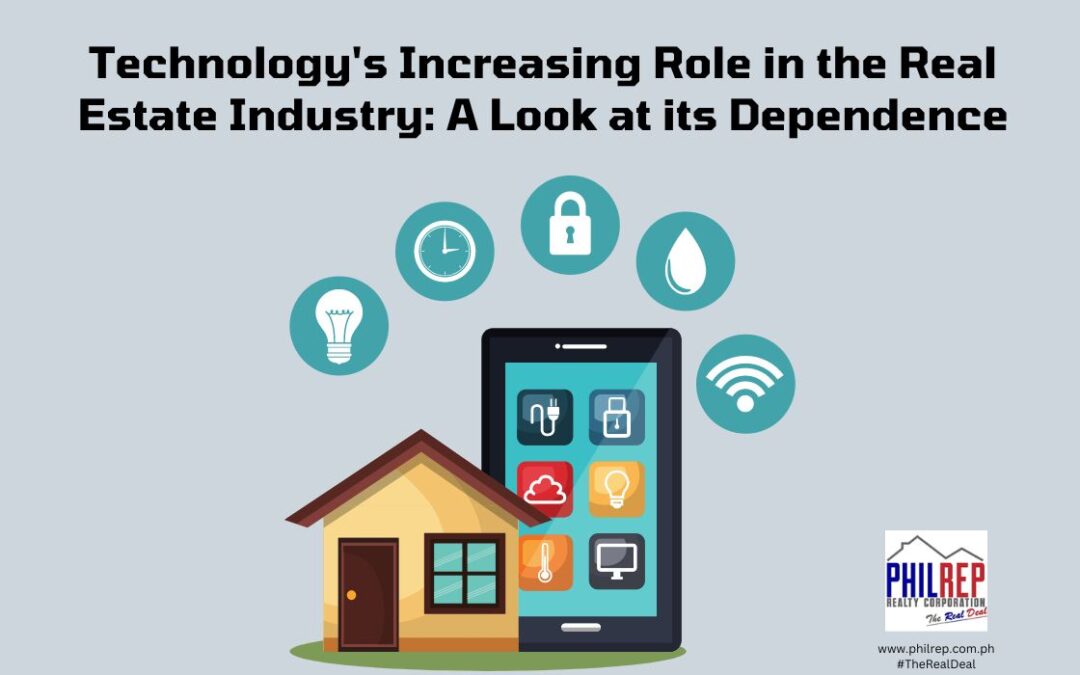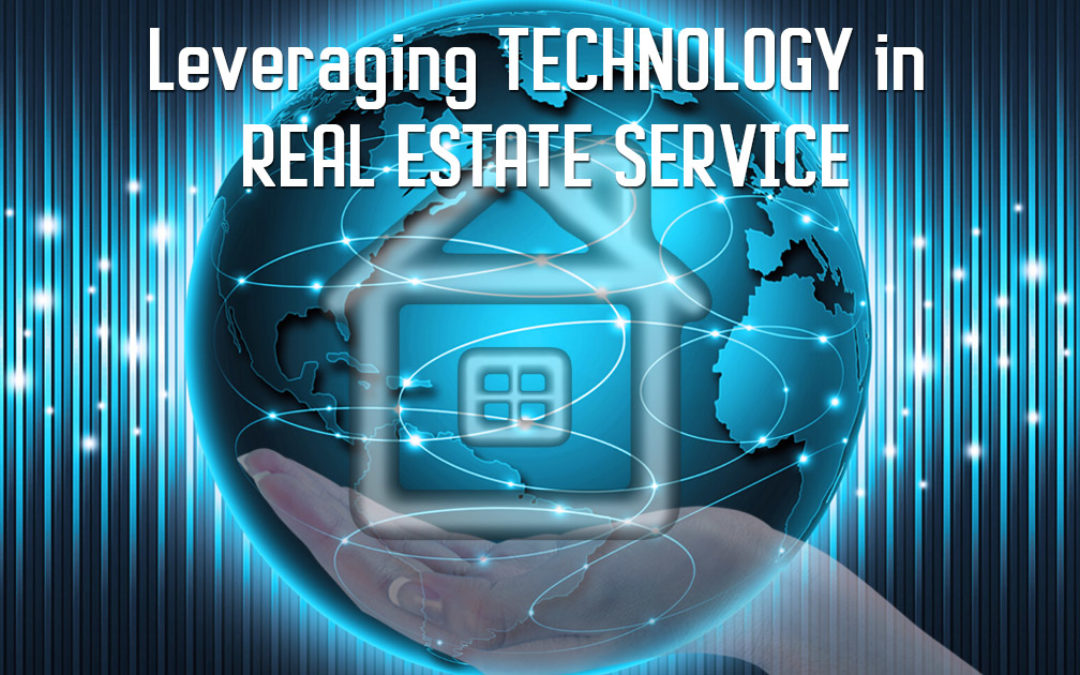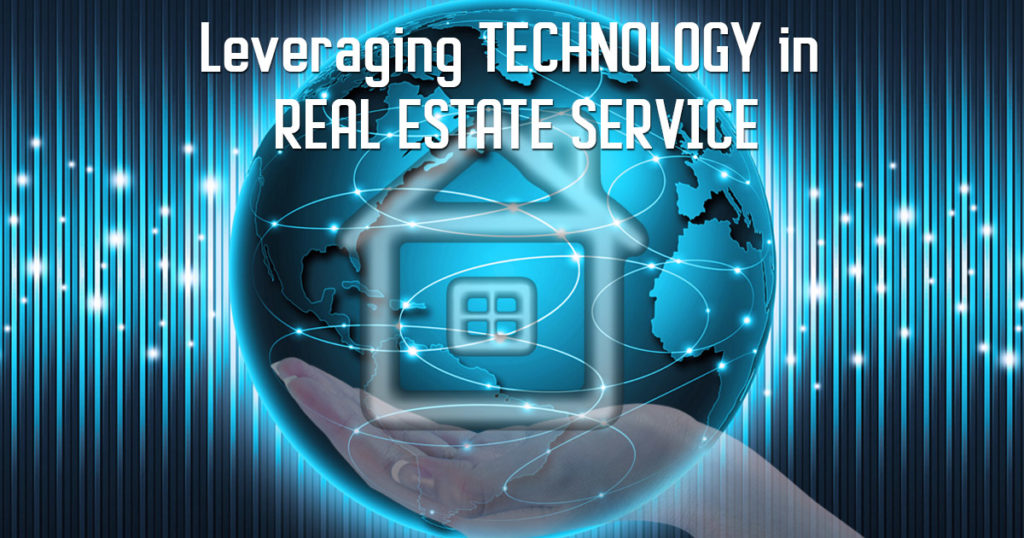
by Doah Sto. Tomas
The real estate industry is no stranger to innovation, and over the years, technology has played a key role in driving its growth and evolution. With the rise of digital tools and platforms, real estate professionals are finding new ways to streamline their operations, enhance customer experience, and stay ahead of the competition. In this article, we will explore the various ways in which technology is transforming the real estate industry and its impact on stakeholders.
Marketing and Advertising
One of the most significant changes in the real estate industry is the shift towards digital marketing and advertising. With the advent of social media and online listing platforms, agents and brokers can now reach a wider audience and promote their properties with greater ease. Platforms like lamudi and dotProperty provide users with detailed property listings, and other features to help them find their dream home. Additionally, real estate professionals are leveraging social media to create engaging content, share listings, and connect with potential buyers and sellers.
Virtual Reality and Augmented Reality
Virtual reality (VR) and augmented reality (AR) are changing the way buyers and sellers interact with properties. VR allows buyers to take virtual tours of properties without having to physically visit them. They can explore different rooms, layouts, and features from the comfort of their own homes. AR, on the other hand, lets buyers visualize how a property would look with different furnishings, decor, or color schemes. These tools provide a more immersive and interactive experience for buyers, enabling them to make more informed decisions.
Smart Homes and the Internet of Things
Smart home technology is rapidly gaining popularity among homeowners, and for good reason. With the Internet of Things (IoT), homeowners can control and automate various aspects of their homes, from lighting to security and appliances. This technology not only makes homes more convenient and comfortable, but it can also increase their resale value. In addition, smart home technology can provide valuable data for real estate agents and brokers, such as usage patterns and energy consumption.
Online Payment Gateway
An online payment gateway is an electronic payment system that facilitates transactions between buyers and sellers by securely transferring funds through various payment methods such as credit and debit cards, net banking, and e-wallets. It is an efficient and secure way of accepting payments online, and it has revolutionized the way people buy and sell properties.
One of the biggest advantages of using online payment gateways in real estate transactions is that it eliminates the need for physical cash transactions. Real estate deals involve large sums of money, and it can be risky to carry such large amounts in cash. With online payment gateways, buyers can make payments electronically, and sellers can receive payments directly into their bank accounts, ensuring complete security and peace of mind.
The role of technology in the real estate industry is growing rapidly, and stakeholders who embrace these innovations are likely to gain a competitive advantage. From digital marketing and virtual reality to smart homes and online payment gateway, the opportunities for transformation are endless. As technology continues to advance, it will be exciting to see what new tools and platforms emerge, and how they will shape the future of the real estate industry.

by Doah Sto. Tomas

How do you prefer to have your condominium or town house? Do you want to be the first occupant, or do you not mind living in a place that was previously owned by other occupants? Do you want to see the actual finished product before purchasing, or would you not mind investing in a building that’s yet to be finished?
Those are just some of the concerns often heard and talked about as clients scout for options regarding condominiums, house and lots, as well as town houses. Good for real estate developers and clients, there are two types of properties available in the market. Let us give you some useful information on what these options are.
What is Pre-Selling?
The term “pre-selling” refers to the condominium units or townhouses/house and lots that are sold prior to its completion. Real estate developers wanted to cater to clients who might not exactly have the budget to purchase the finished unit but has money in the bank enough to pay for a spot in a physical property.
One setback in pre-selling units is that you don’t get to appreciate the finished infrastructure because you don’t really get to see it until it’s really done. In fact, your expectations may be a tad different from what you will see when the final product is ready.
However, the good news is that there are dressed up and turn over condominium units, model townhouse units/ house and lots that your agent or broker can show you. It means that you don’t really need to do guesswork or blind buy into something costly.
Given these considerations, you might also want to get in touch with a developer with a good track record in terms of infrastructure and design so that you can at least enjoy the aesthetics as you envisioned it to be.
Is RFO for you?
After the building or property has been completed, it will be sold and RFO or “Ready For Occupancy.” If you need a roof on top of your head as soon as possible, then RFO is the way to go.
If you’re the type of client who wants to be guaranteed of quality in terms of construction and design before making a purchase, then RFO will allow you to examine the physical aspects – amenities and facilities — of your property. It will be easier for you to judge whether you will push through with your investment if you have seen it.
The potential issue with RFO is that most of the good units or home properties with good views and prime spots have been sold during the pre-selling stage. That would mean that the units that have been left will be your only choices.
Making your smart choice
Now that you’re well-versed in these terms, you can better weigh your options in case you’d like to invest in a real estate property. Pre-selling is financially more accessible to most potential clients, but it has its risks. RFO has lesser risks but indeed it’s heavier on the pocket.
Again, we advise you to get in touch with a real estate broker or a developer that has a good record that you can trust so that you will have more chances of making the right choice.

by Doah Sto. Tomas

After the harsh onslaught of the pandemic, many people thought that the real estate industry would eventually go down the drain. And why not? Real estate selling starts with handing out of glossy flyers to people in crowded places like malls and thrives on actual visits around and out of town. Unfortunately, all these were prohibited during the lockdown and caused somewhat of an economic turmoil and frustration not only in real estate, but in the realm of most businesses around the world.
A NEW MARKETPLACE
Fortunately, there was social media and digital ads. Digitalization made it possible for real estate to operate on the web. It did take some time before the industry could adjust to the new normal. The digital transition was not easy, but doable, anyway. After all, houses and living spaces are a necessity even during the time of the pandemic. A little more than a year after the pandemic began, most real estate companies shifted from the usual interpersonal communication to the digital marketplace. And what made this work was keeping the clients constantly informed and updated with what’s going on.
A ONE-STOP LOCATION
In terms of updated services, real estate developments became more comprehensive and holistic in terms of what they offer. Buildings have now combined residential, office, and commercial spaces, with the idea of safety and not just convenience. The idea is that the less people leave the vicinity of the safety zone, the less chances of transmitting the virus and putting neighbors in danger. Apparently, this idea is something that has not been thought of before the pandemic. But now, it has become a selling point for developers.
CONTACTLESS SOFTWARES
No one wants to touch anything nowadays because pathogens stay on surfaces for days and these have elicited fear among people. So as a solution, most condominium projects now have smart home features like using QR Codes which allows dwellers to move around without having to constantly touch objects and transmit the disease to others. It does not really come off as costly, considering the safety and security that it offers. We cannot stress it enough, that an ounce of prevention is always better than a pound of cure.
SOCIAL DISTANCE
The real estate industry identified a novel factor that now drives buyers to purchase properties: vast space. With the new normal health protocol, people wanted to move out of congested areas because they feared COVID-19. In effect, more and more potential buyers inquired about properties situated outside the metro. Preferences were Laguna, Cavite, and Pampanga. These are provinces not too far from the capital region. Even Iloilo and Cebu were choice areas in the South for those who wanted to relocate or simply buy. And because of the remote working conditions, most professionals were not deterred by the distance. Still, safety was the primary consideration.
THE RAY OF LIGHT
The industry recovery in the first quarter of 2021 promises a brighter future in world of real estate. For one, the demographics of buyers are now younger, coming from the 20–30-year-old brackets. The health sector’s continuous push for physical distancing has encouraged a lot of people to go solo as much as they can, if that is the best way to save themselves from the perils of the pandemic.
The vaccines are here, and hopefully, as soon as we reach the point of herd immunity, there will be another shift in the industry. The economy will adjust to a now normal and people will have access to bank loans, making it possible for them to buy properties again. Thus, the real estate industry will surely see better days ahead.

by Doah Sto. Tomas

“The ultimate measure of a man is not where he stands in moments of comfort and convenience but where he stands in times of challenge and controversy.” – Martin Luther King Jr.
The POGO Exodus
COVID-19 has been dubbed “the great equalizer”. It doesn’t distinguish between rich or poor, good or evil, young or old, the powerful and the weak, nor does it care about national borders or governments. It is simply a virulent, invisible force of nature that has spread to nearly every corner of the modern world as we know it. Unceremoniously shutting down big and small businesses and companies alike. The pandemic has impacted nearly all industries where human contact and interaction is an essential part of daily operations. And the gaming and amusement industry is no exception to this.
You may ask, what does this have to do with the real-estate industry? It has been no secret that the Philippines, through the PAGCOR (Philippine Amusement and Gaming Corporation) has welcomed POGOs (Philippine Offshore Gaming Operators) with open arms despite being a controversial or touchy subject matter for a lot of Filipinos. The government has touted the country as an ideal destination for online casinos due to. According to PAGCOR, there are 56 PAGCOR-licensed POGOs as of June 2019. And it has been estimated that at least 30 POGO firms are operating illegally in the Philippines. In fact, 265 Chinese nationals were arrested as the result of a raid of an illegal gambling operation in Las Pinas City on May 15, 2020. The illegal POGO was operating out of a rented hotel, even despite the pandemic and quarantine lock-down.
POGOs have come to the Philippines in droves bringing with them thousands of Chinese nationals that operate the lucrative offshore gambling businesses. This huge influx of Chinese nationals of course needed somewhere to stay, and the real estate industry was suddenly rife with opportunity as POGOs started snatching up properties in close proximity to their operations so they could quickly ferry their employees to work. Not only that, a study by KMC Savills Inc. has revealed that POGOs have utilized an estimated 800,000 square meters (or 8,600,000 square feet) of office space to house their operations.
This proved to be a big opportunity for those in the real estate industry. Chinese POGOs were willing to pay higher than the normal rate to lease property in locations near their operations. Property owners were now more than happy to lease out their property with preference for Chinese nationals working at POGOs. However, the downsides would soon rear its ugly head.
Those living in exclusive subdivisions now suddenly had a growing community of noisy Chinese nationals as their neighbors. Complaints and horror stories of property damage began to increase as a significant number of the Chinese nationals apparently had little respect for the property they were living in, as well as a general lack of household cleanliness and regard for property upkeep. Another sad by-product of the POGO real estate gold rush was the artificial shortage of property for Filipino families looking for fairly priced property. Rumors about local tenants being evicted or their lease not being renewed in order to give way to Chinese nationals started to spread as well.
Fast forward to March 21, 2020. In a bid to combat the Covid-19 outbreak, the PAGCOR orders all gambling operations to cease operations until further notice. Needless to say, POGO operations suddenly ground to a screeching halt. Except for those operating illegally, all legitimate POGOs found themselves in a bad financial situation. Gambling operations typically run 24×7 and thereby employs a large number of employees. Now these employees are unable to go to work due to the government-imposed quarantine measures. Surprisingly, PAGCOR even went so far to suspend work-at-home setups for those under their jurisdiction to ensure compliance. POGO licenses and services providers found to be non-compliant now faced possible cancellation of their license and accreditation, and will be reported to the authorities. On top of this, POGOs are currently under scrutiny for unpaid taxes with the BIR (Bureau of Internal Revenue), as well as controversies surrounding a growing number of “sex-dens” servicing foreign workers.
The pandemic in the Philippines still appears to be nowhere near “flattening the curve” as experts put it. To date, at least two POGOs have already left the country and more are now poised to leave the Philippines according to PAGCOR Chairperson and CEO Andrea Domingo. An unspecified number of POGOs have also filed for the cancellation of their licenses, while others have yet to file their official exit. PAGCOR claims that the primary reason for this is not just the impact of the pandemic, but due to “more appealing tax rates” and “friendlier environments” as decision-makers behind the POGOs re-evaluate their options.
With all of this in mind, the most likely scenario is that POGOs are on their way out. And with them goes the potential for cashing in on significantly higher lease rates. Just barely a year ago, POGOs overtook BPOs (Business Process Outsourcing) in real estate utilization and contributed over 6.4 Billion Pesos in taxes. Now, it is only a matter of time before the POGO real estate deep well dries out.

by Doah Sto. Tomas

If you are trying to get back on your feet amidst the GCQ, then here are a few ways to get clients in the new normal!
Build A Website
The new normal requires social distancing, and with non-essential businesses temporarily closed due to the government mandate for self-quarantine measures to be in effect, having a website is one of the best ways to get your listings out. We know this can be a bit daunting for most people, so we’ll post more articles to help you get started building your website, so stay tuned! For now, let’s concentrate on the advantages of having your own real-estate website:
1.) Accessibility
Once you have your website up and running, your properties can be viewed by endless potential clients from all over the world. It is readily accessible, and it can be easily shared online. The properties you sell can be seen conveniently and gain interest from various people. But what if getting your website up and running is currently not feasible right now? What other options do you have to get the word out online that you’re in the real-estate business? The next best thing is to leverage something that is already there and already accessed by millions of people worldwide, and that is Social Media! Don’t worry, we’ll get to that in a minute.
2.) Credibility
With a website, you can build your online credibility and even establish your brand, if you’re inclined to do so. Building credibility is very important for Brokers and Agents alike. Having good credibility builds trust with your client and can help you land good deals and in turn, potential get more buyers through positive word-of-mouth.
To establish a good business and personal relationship with your clients, it is advisable that you start focusing on specific projects or areas. Having a focus project or area allows you to concentrate on learning all about that specific project or area. The whole point of this is to become very familiar with the project to the point where you can call yourself a subject matter expert (SME). Being an SME means you can talk about a project in detail with your potential clients and answer their questions with confidence. This builds up your image with your buyers because this shows them that you know exactly what you are talking about.
3.) Management
With your own website, you have complete control over what you post, and when you post it. This means you now have the ability to keep all your listings up to date. An updated inventory gives you the advantage of finding the right home for your client. This can be very advantageous if you are focusing on high-end properties. Depending on the number of properties you advertise, this can be also pose a challenge as well.
Use Social Media
Having your own website out of the question for now? You can use social media as your platform! It’s quick and easy to set up!
1.) Advertisements
Take advantage of the various free social media sites such as Twitter, Facebook, LinkedIn, and Instagram to advertise your listings and garner attention. These platforms are often used by the general public, and when properly utilized, can spread your name or your company’s name in a very short period of time. You also have the option of boosting your posts in social media. On most social media platforms, boosting your post is quite affordable, but your mileage may vary of course. It is always better to build your online reputation first by creating useful and informative posts on these platforms so that people start to take notice of you and hopefully share your posts with their circle of friends and acquaintances. Think of this as a positive word-of-mouth endorsement.
2.) Relevancy
Social media apps are available to almost everyone with Internet access, so it helps you stay relevant in the public’s eye. Using these sites can help you expand your reach in advertising your properties and also get your name out to interested clients. It is important to let your presence be known because the more people that know you, the more they think about your business. Try to keep your posts always relevant to real-estate so that your social media profile because better associated with the real-estate industry.
3.) Branding
If you want to be able to differentiate yourself from the rest of your competitors, you should establish your brand. This is a great way to establish name-recall and show your specialization to your clients. You can brand yourself as a property consultant, but that also makes you responsible for keeping yourself up to date on everything affecting real estate. This means always reading the latest news and trends from reputable sources. Doing this gives your clients the confidence that they are getting the best advice on their real estate concerns.
Learn Video/Photo Editing and Production
You need to be competitive online. It is inevitable that you need to learn and understand what makes a video or picture effective in attracting potential buyers. It’s a given that potential clients will want to see what you’re selling. After all, everyone wants to see what they’re paying for!
1.) Visual Appeal
It is important for listings to be appealing to clients. It either creates a good or bad impression on them. Often buyers tend to not stick around a property which looks dark, cluttered, and unorganized. It also shows how the quality of the estate, whether the condition is fit for them to live in or not. It pays to learn more about the basics of taking an appealing photo of real-estate properties. We will tackle this in future articles.
2.) Perspective
Basic knowledge on selecting a good visual perspective of a property will help make your property more appealing to potential clients. It will also help make your listing more visually informative, providing your buyer with a better understanding of the estate.
3.) Image and Video size
This is a bit on the technical side, but you want to keep the file size of your images and videos small enough so they load quickly but still retain a decent visual quality so they don’t come out as blurry or pixelated. We will be posting more on this topic soon, so stay tuned for our future articles!
Knowledge on Your Property
1.) Be Knowledgeable
This is very important in the field of Real Estate. The last person a buyer wants to talk to is someone who doesn’t have the basic information readily available. Having extensive knowledge on the property you are selling can help clients make decisions faster (i.e. close the sale). Also, being able to answer their questions quickly and effectively shows your seriousness in helping them make an informed decision. You might now end up closing the deal now, but this will leave a positive impression on your client and can potentially result in a future sale or referral.
2.) Customer Care
It is important to assume that you are not the only one a buyer is talking with. Most clients shop around first in order to compare offers from properties that they are interested in. Potential clients often go for the agent or broker who provides the best knowledge and customer care. Show the customer you are not just in it for the commission, but you are providing them a valuable service by acting as an investment adviser of sorts so they can make the best decision with their money.
3.) Landing the Deal
If you have great familiarity and knowledge on your properties, you can cater to your buyer’s needs effectively. You can also provide alternatives or better options to fit their tastes when looking through listings, thus helping them find their dream home or investment opportunity.
“Dahil sa new normal, kailangan natin gumawa ng paraan para maka-adapt sa ating bagong sitwasyon. Wala sa edad ‘yan, lahat tayo puede matuto, basta palagi natin isipin na kakayanin natin.”

by MikeL Reonal
The COVID-19 pandemic has left no industry untouched. Pandemic has a sudden and significant impact on all aspects of people’s lives across the world now living under some sort of lockdown quarantine. Lots of us lost their job or even facing a lay-off while all businesses that are affected are trying to bounce back from all the loss and momentum they had.
Real-estate is one of the industries that will feel the outcome of this unexpected disaster we are facing. The unemployment rate will rise as most of us will start to plan again for the opportunities and dreams we’ve lost.
At some point in moving forward. We at PhilRep Realty sees the opportunity for a property investor or individual people who still have the capacity to pursue their plan to buy house and lot, condominium, or commercial property.
Advantage of buying real estate properties these Pandemic time:
- Some developers are giving big discounts on downpayment and lower pricing.
- More foreclose properties will be posted in PAG-IBIG or banks.
- Less competition in choosing the right unit you want.
Point of View:
In every crisis, there is always a solution to keep us alive and kickin’. Let us not lose hope because for every dark night there’s a brighter day.










